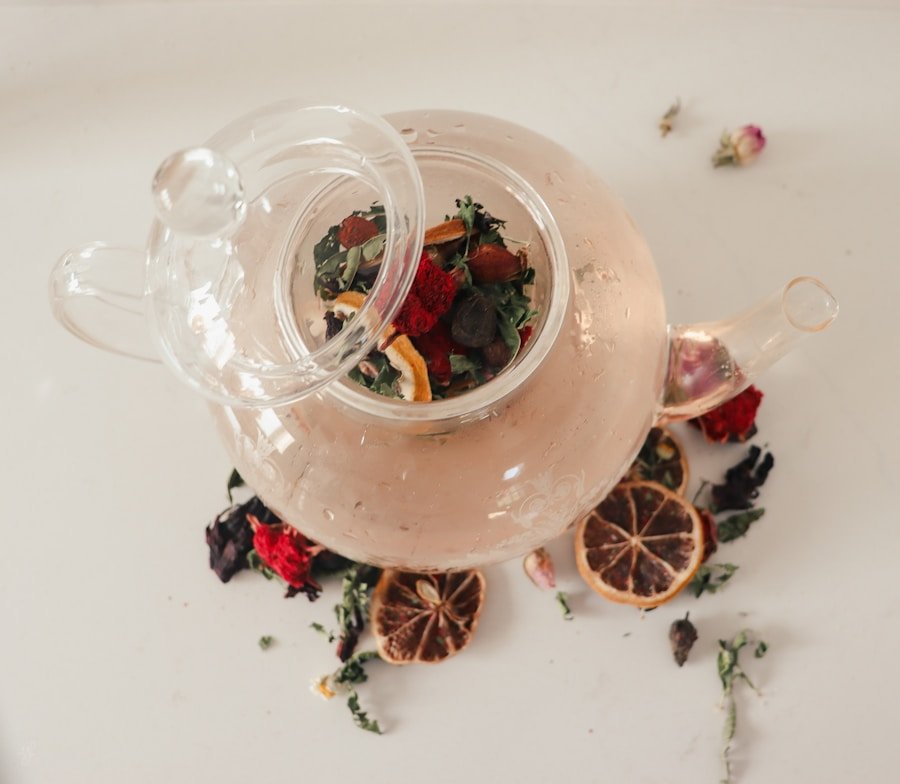For centuries, medicinal plants have been utilized as a natural means of promoting health and wellness. These plants possess diverse compounds that have been scientifically proven to exhibit therapeutic properties, rendering them a valuable adjunct to daily health regimens. The benefits of medicinal plants are multifaceted, ranging from alleviating digestive issues to enhancing immune function, thereby contributing to overall well-being.
By incorporating these plants into one’s daily routine, individuals can adopt a simple and effective approach to managing their health in a natural and holistic manner.
Key Takeaways
- Medicinal plants have been used for centuries to promote health and wellness.
- Incorporating medicinal plants into daily routines can provide numerous health benefits.
- Common medicinal plants like ginger, turmeric, and aloe vera have various uses for improving health.
- Medicinal plants can be easily incorporated into daily routines through teas, supplements, and topical applications.
- It is important to consult a healthcare professional before using medicinal plants to ensure safety and effectiveness.
Benefits of Incorporating Medicinal Plants into Daily Health Routines
Natural Healing and Inflammation Reduction
Medicinal plants have the ability to support the body’s natural healing processes. Many of these plants contain compounds with anti-inflammatory, antioxidant, and antimicrobial properties, which can help the body fight off infections and reduce inflammation.
Improved Overall Health and Well-being
In addition to their healing properties, medicinal plants can also promote better digestion, improve circulation, and support the immune system, leading to overall improved health and well-being. Furthermore, using medicinal plants can be a cost-effective and sustainable way to manage common health issues without relying on synthetic medications.
Mental and Emotional Benefits
Incorporating medicinal plants into your daily routine can also provide mental and emotional benefits. Many plants have been found to have calming and stress-relieving properties, which can help reduce anxiety and promote relaxation. This can be particularly beneficial for those who struggle with stress-related conditions such as insomnia or high blood pressure.
Common Medicinal Plants and Their Uses
There are countless medicinal plants that can be incorporated into daily health routines, each with its own unique set of benefits. Some common medicinal plants include ginger, turmeric, garlic, and chamomile. Ginger is well-known for its ability to soothe digestive issues such as nausea and indigestion, while turmeric has powerful anti-inflammatory properties that can help reduce pain and swelling.
Garlic is a potent antimicrobial agent that can help fight off infections, and chamomile is often used for its calming and sleep-inducing effects. Other popular medicinal plants include echinacea, elderberry, and peppermint. Echinacea is commonly used to boost the immune system and reduce the severity of colds and flu, while elderberry is known for its antiviral properties and ability to support the immune system.
Peppermint is often used to soothe digestive discomfort and alleviate symptoms of irritable bowel syndrome (IBS). These are just a few examples of the many medicinal plants that can be incorporated into daily health routines to promote overall well-being.
How to Incorporate Medicinal Plants into Your Daily Routine
| Medicinal Plant | Health Benefit |
|---|---|
| Aloe Vera | Improves digestion and boosts immunity |
| Turmeric | Anti-inflammatory and antioxidant properties |
| Ginger | Relieves nausea and reduces muscle pain |
| Lavender | Calms anxiety and promotes better sleep |
| Peppermint | Relieves headaches and aids in digestion |
Incorporating medicinal plants into your daily routine can be done in a variety of ways. One of the simplest methods is to consume them in the form of herbal teas or infusions. This allows you to easily enjoy the benefits of the plants while also staying hydrated.
Additionally, you can incorporate medicinal plants into your diet by adding them to your meals or using them as seasonings. For example, turmeric can be added to curries and soups, while garlic can be used in a wide range of savory dishes. Another way to incorporate medicinal plants into your daily routine is by using them in aromatherapy.
Essential oils derived from medicinal plants can be diffused in the air or applied topically to provide various therapeutic benefits. For example, lavender essential oil is often used to promote relaxation and improve sleep quality, while peppermint essential oil can help alleviate headaches and improve mental clarity. Additionally, you can use medicinal plants in the form of supplements or tinctures, which can provide a concentrated dose of their beneficial compounds.
Precautions and Considerations When Using Medicinal Plants
While medicinal plants offer numerous benefits, it’s important to use them with caution and consideration. Some plants may interact with certain medications or medical conditions, so it’s essential to consult with a healthcare professional before incorporating them into your routine. Additionally, some plants may cause allergic reactions or side effects in some individuals, so it’s important to start with small doses and monitor your body’s response.
It’s also crucial to ensure that you are using high-quality medicinal plants from reputable sources. This can help ensure that you are getting the full range of beneficial compounds from the plants without any harmful contaminants. Furthermore, it’s important to educate yourself about the proper dosage and usage of each plant to maximize their benefits while minimizing any potential risks.
The Importance of Consulting a Healthcare Professional
Before incorporating medicinal plants into your daily health routine, it’s crucial to consult with a healthcare professional. A qualified practitioner can help you determine which plants are best suited for your individual needs and provide guidance on how to use them safely and effectively. They can also help you identify any potential interactions with medications or medical conditions, ensuring that you can use these plants without compromising your health.
Additionally, a healthcare professional can help monitor your progress and make adjustments to your routine as needed. They can provide personalized recommendations based on your specific health goals and concerns, helping you get the most out of incorporating medicinal plants into your daily routine. By working with a healthcare professional, you can ensure that you are using medicinal plants in a way that supports your overall health and well-being.
Embracing the Power of Medicinal Plants in Daily Health Practices
Incorporating medicinal plants into your daily health routine can be a simple yet powerful way to support your overall well-being. From promoting physical health to providing mental and emotional benefits, these plants offer a wide range of therapeutic properties that can enhance your daily life. By using them in various forms such as teas, aromatherapy, or supplements, you can easily enjoy their benefits while also taking control of your health in a natural and holistic manner.
However, it’s important to use medicinal plants with caution and consideration, as they may interact with medications or cause side effects in some individuals. Consulting with a healthcare professional is essential before incorporating these plants into your routine, as they can provide personalized guidance and ensure that you are using them safely and effectively. By embracing the power of medicinal plants in your daily health practices with the guidance of a healthcare professional, you can take proactive steps towards supporting your overall well-being in a natural and sustainable way.
FAQs
What are medicinal plants?
Medicinal plants are plants that have been used for their therapeutic properties for centuries. They contain active compounds that can have a positive impact on health and wellness.
What are some common medicinal plants?
Some common medicinal plants that can be incorporated into daily health routines include aloe vera, ginger, turmeric, garlic, peppermint, chamomile, and echinacea.
How can medicinal plants be incorporated into daily health routines?
Medicinal plants can be incorporated into daily health routines in various ways, such as consuming them as part of a balanced diet, brewing them into teas, using them in essential oils or topical ointments, or taking them in supplement form.
What are the potential health benefits of incorporating medicinal plants into daily routines?
Incorporating medicinal plants into daily health routines can provide a range of potential health benefits, including improved digestion, reduced inflammation, enhanced immune function, and relief from common ailments such as headaches, nausea, and muscle pain.
Are there any potential risks or side effects associated with using medicinal plants?
While medicinal plants can offer numerous health benefits, it’s important to be aware that some plants may have potential risks or side effects, especially when used in large quantities or in combination with certain medications. It’s always best to consult with a healthcare professional before incorporating new medicinal plants into your daily routine, especially if you have any underlying health conditions or are pregnant or breastfeeding.




